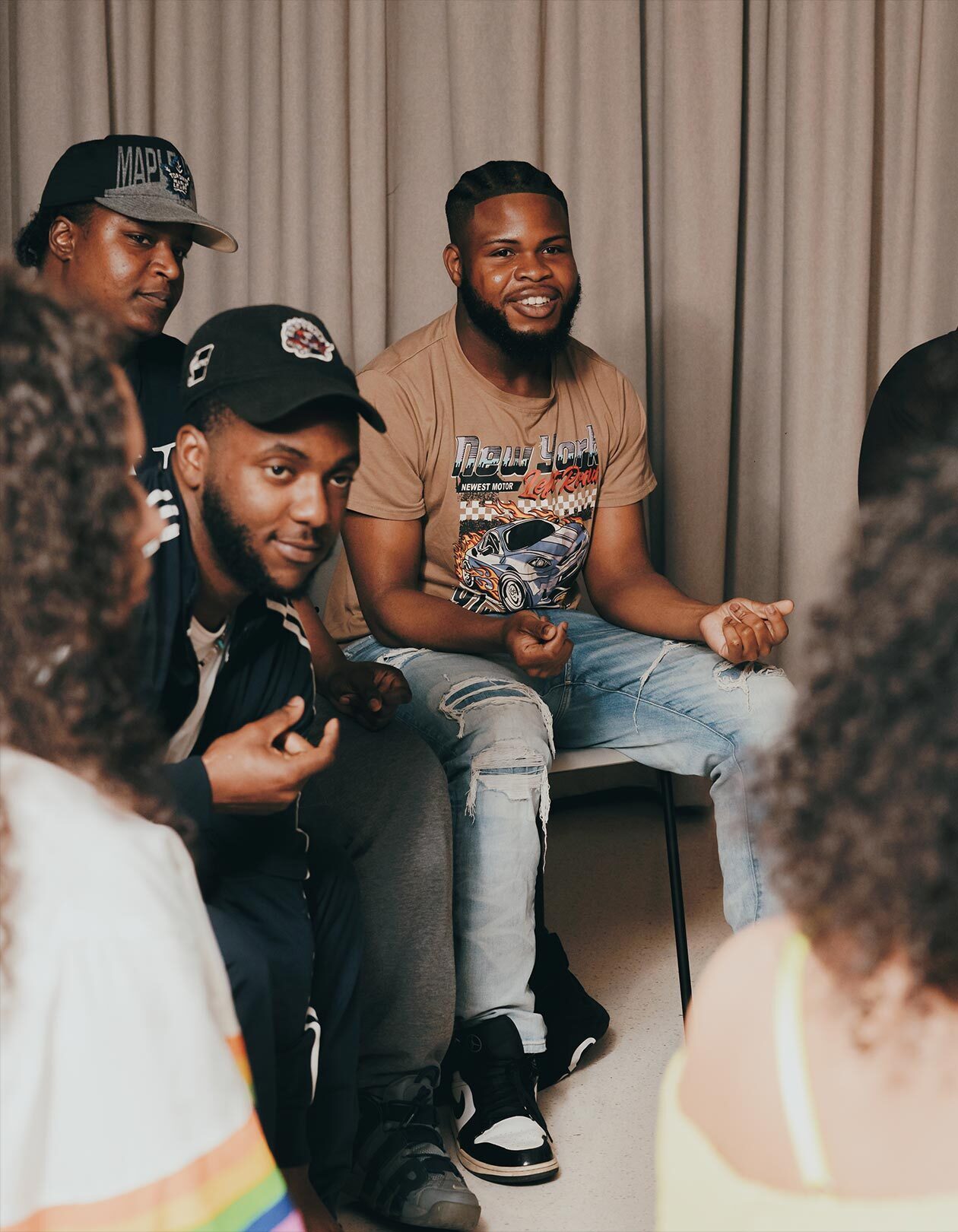Secure the Bag: A Quick Guide to Budgeting and Credit
Financial success isn’t just about earning money—it’s about making smart choices with what you already have. From budgeting and saving to building credit and avoiding unnecessary debt, no one is born knowing how to manage money. The good news? Financial literacy is a skill we can all develop with the right tools and support.
Drawing from our Class of '24 on Budgeting and Credit with the Wealthsimple Foundation, this guide brings financial basics to your fingertips. Whether you’re starting fresh or refining your habits, we’ll break it down step by step.

Developing a Positive Money Mindset
Your money mindset—how you think and feel about money—shapes the way you save, spend, and manage your finances. Cultivating a positive mindset helps you make better financial decisions.
If money always seems to slip through your fingers, saving might feel out of reach. But when you start seeing money as a tool—something you control—you can make more confident financial choices. A solid plan, combined with small, consistent actions, can transform your financial habits and set you up for long-term success.
Managing Your Money
Like any other skill, managing your finances takes preparation, discipline, and consistent practice. Here’s how to build strong financial habits:
- Track your spending: Use an app or a spreadsheet to log every expense. Understanding where your money goes is the first step to taking control.
- Set realistic budgets: Cover essentials first—rent, food, transportation—then allocate money for savings and discretionary spending.
- Stick to your plan: Check in regularly, make adjustments as needed, and stay mindful of your financial goals.

Yéila and Father Jaws Siriano dip during the Vogue Masterclass with Icon Ricky Allure.

Roses and Kuriosity Pink Lady tune in for the Session on Financial Literacy with the Wealthsimple Foundation.
Budgeting Basics
Budgeting isn’t about restriction—it’s about directing your money toward what matters most.
- Avoid unnecessary debt: If your expenses exceed your income, take a closer look at your spending and identify areas to cut back.
- Save with purpose: A budget helps you set aside money for future goals, not just immediate wants.
- Stay balanced: Find ways to reduce spending so you’re not left short at the end of the month.
Saving Made Simple
You don’t need a big paycheck to start saving—you just need a plan. Even small amounts add up over time, and the sooner you start, the more your money can grow.
- Start small, but start now: $5 a month is better than nothing. The key is consistency.
- Automate your savings: Setting up auto-deposits makes saving effortless—and people who do it tend to save twice as much.
- Define your goals: Whether it’s an emergency fund, a vacation, or an investment, having a clear goal keeps you motivated and on track.

Prince Ellesmere Constantine, Legendary Father Notis Poseida, and Tyson Unbothered Cartier learn the art of commentating with Legendary Precious Basquiat.
Building Credit
Your credit score plays a big role in your financial future. It affects your ability to rent an apartment, get a phone plan, or qualify for loans with lower interest rates. But credit is a tool—it can work for you or against you, depending on how you manage it.
- Pay on time, every time: Payment history is the biggest factor in your credit score. Set up reminders or autopay to avoid late payments.
- Keep credit usage low: Try to use less than 30% of your total credit limit. If you have a $1,000 limit, aim to keep your balance under $300.
- Start early and build wisely: If you don’t have credit yet, consider a secured credit card or a small credit line you can pay off in full each month.
Paying Off Debt the Smart Way
Carrying debt? Paying it off strategically can save you money and help you regain control. The waterfall method focuses on tackling high-interest debt first, reducing what you pay over time. Here’s how:
- List all your debts: Include credit cards, loans, or any other balances you owe. Note the interest rates and minimum payments for each.
- Make minimum payments on all debts: This keeps your accounts in good standing and prevents late fees.
- Focus extra payments on the highest-interest debt: Any extra cash should go toward the debt with the highest interest rate while maintaining minimum payments on the others.
- Roll payments into the next debt after payoff: Once the highest-interest debt is paid off, apply that payment amount to the next highest-interest debt. Repeat until you’re debt-free.
By eliminating high-interest debt first, you reduce the amount you pay in interest and free up more money to reach your financial goals faster.
The Bottom Line
Building financial security doesn’t happen overnight. Whether it’s tracking your spending, setting up a savings plan, or improving your credit, small steps lead to big wins. The key is to start—and keep going. Now, go secure the bag.

Spirit Poseida sits in on the session.

Father Jaws Siriano and Serena Pink Lady face off.
In partnership with
-
Wealthsimple Foundation